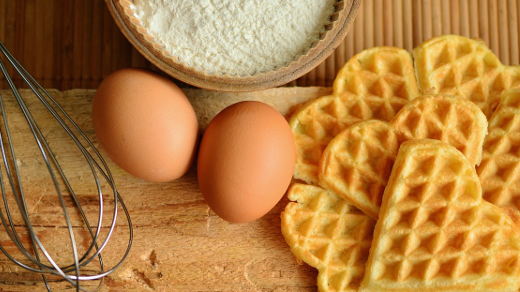What’s a fun way to promote the principles of free software without actually coding? Here’s an idea: open source cooking. For the past eight years, this is what we’ve been doing in Munich.
The idea of open source cooking grew out of our regular open source meetups because we realized that cooking and free software have a lot in common.
Cooking together
The Munich Open Source Meetings is a series of recurring Friday night events that was born in Café Netzwerk in July 2009. The meetings help provide a way for open source project members and enthusiasts to get to know each other. Our motto is: “Every fourth Friday for free software.” In addition to adding some weekend workshops, we soon introduced other side events, including white sausage breakfast, sauna, and cooking.
The first official Open Source Cooking meetup was admittedly rather chaotic, but we’ve improved our routine over the past eight years and 15 events, and we’ve mastered the art of cooking delicious food for 25-30 people.
Looking back at all those evenings, similarities between cooking together and working together in open source communities have become more clear.
FLOSS principles at play
Here are a few ways cooking together is like working together on open source projects:
- We enjoy collaborating and working toward a result we share.
- We’ve become a community.
- As we share a common interest and enthusiasm, we learn more about ourselves, each other, and what we’re working on together.
- Mistakes happen. We learn from them and share our knowledge to our mutual benefit, so hopefully we avoid repeating the same mistakes.
- Everyone contributes what they’re best at, as everyone has something they’re better at than someone else.
- We motivate others to contribute and join us.
- Coordination is key, but a bit chaotic.
- Everyone benefits from the results!
Smells like open source
Like any successful open source-related meetup, open source cooking requires some coordination and structure. Ahead of the event, we run a call for recipes in which all participants can vote. Rather than throwing a pizza into a microwave, we want to create something delicious and tasty, and so far we’ve had Japanese, Mexican, Hungarian, and Indian food, just to name a few.
Like in real life, cooking together requires having respect and mutual understanding for each other, so we always try to have dishes for vegans, vegetarians, and people with allergies and food preferences. A little beta test at home can be helpful (and fun!) when preparing for the big release.
Scalability matters, and shopping for our “build requirements” at the grocery store easily can eat up three hours. We use a spreadsheet (LibreOffice Calc, naturally) for calculating ingredient requirements and costs.
For every dinner course we have a “package maintainer” working with volunteers to make the menu in time and to find unconventional solutions to problems that arise.
Not everyone is a cook by profession, but with a little bit of help and a good distribution of tasks and responsibilities, it’s rather easy to parallelize things — at some point, 18kg of tomatoes and 100 eggs really don’t worry you anymore, believe me! The only real scalability limit is the stove with its four hotplates, so maybe it’s time to invest in an infrastructure budget.
Time-based releasing, on the other hand, isn’t working as reliably as it should, as we usually serve the main dish at a rather “flexible” time between 21:30 und 01:30, but that’s not a release blocker, either.
And, as with in many open source projects, cooking documentation has room for improvement. Cleanup tasks such as washing the dishes, surely can be optimized further, too.
Future flavor releases
Some of our future ideas include:
- cooking in a foreign country,
- finally buying and cooking that large 700 € pumpkin, and
- find a grocery store that donates a percentage of our purchases to a good cause.
The last item is also an important aspect about the free software movement: Always remember there are people who are not living on the sunny side, who do not have the same access to resources, and who are otherwise struggling. How can the open nature of what we’re doing help them?
With all that in mind, I am looking forward to the next Open Source Cooking meetup. If reading about them makes you hungry and you’d like to run own event, we’d love to see you adapt our idea or even fork it. And we’d love to have you join us in a meetup, and perhaps even do some mentoring and QA.
Article originally appeared on blog.effenberger.org. Reprinted with permission.







Comments are closed.